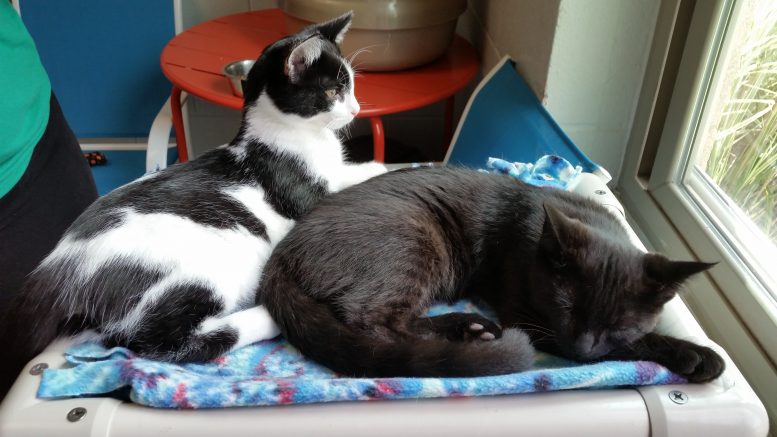The Wood County Humane Society will reopen Tuesday, May 5, after being closed for the past several weeks due to coronavirus concerns.
When the shelter reopens to the public, there will be changes in operating protocol to maintain the health and safety of both staff and visitors. Only potential adopters will be admitted to the shelter at this time and those visitors will be accepted by appointment only. Adoption appointments can be scheduled by calling the shelter during regular operating hours, which have been temporarily modified to 12 – 5 pm., Tuesday through Sunday.
Adopters are encouraged to begin the adoption process online and by scheduling phone or Zoom meetings.
When visiting the shelter for an appointment, all people must consent to having their temperature taken via forehead scanner before entering the shelter and must wash their hands upon entering the shelter. Once inside, visitors must wear a face mask/covering at all times.
In addition to potential adopters, anyone seeking food assistance, animal intake, donation drop offs, or/and TNR must schedule an appointment to visit the shelter.
Shelter staff also are working hard to ensure the health and safety of themselves and the public by ramping up disinfection/sanitation throughout the shelter, particularly of frequently handled objects, and by maintaining a minimum of 6 feet of distance between themselves and others while on shelter property.
For complete regulations regarding shelter visits, or to schedule an appointment, people are encouraged to call the shelter at 419-352-7339.
The Wood County Humane Society, located in Bowling Green, is a private, non-profit, managed admission shelter providing care for homeless and abused or neglected pets. The organization receives no funding from national humane organizations for daily operations, instead relying on earned revenue and the generosity of individual donors and businesses to fund programs such as Humane Investigations, Safe Pets, food assistance programs, low-cost spay/neuter opportunities, and educational presentations.
The WCHS provides care for over a thousand animals each year—from dogs and cats, to the occasional pocket pet or farm animal. All animals admitted into the adoption program are housed and cared for as long as it takes to find their adoptive home.

